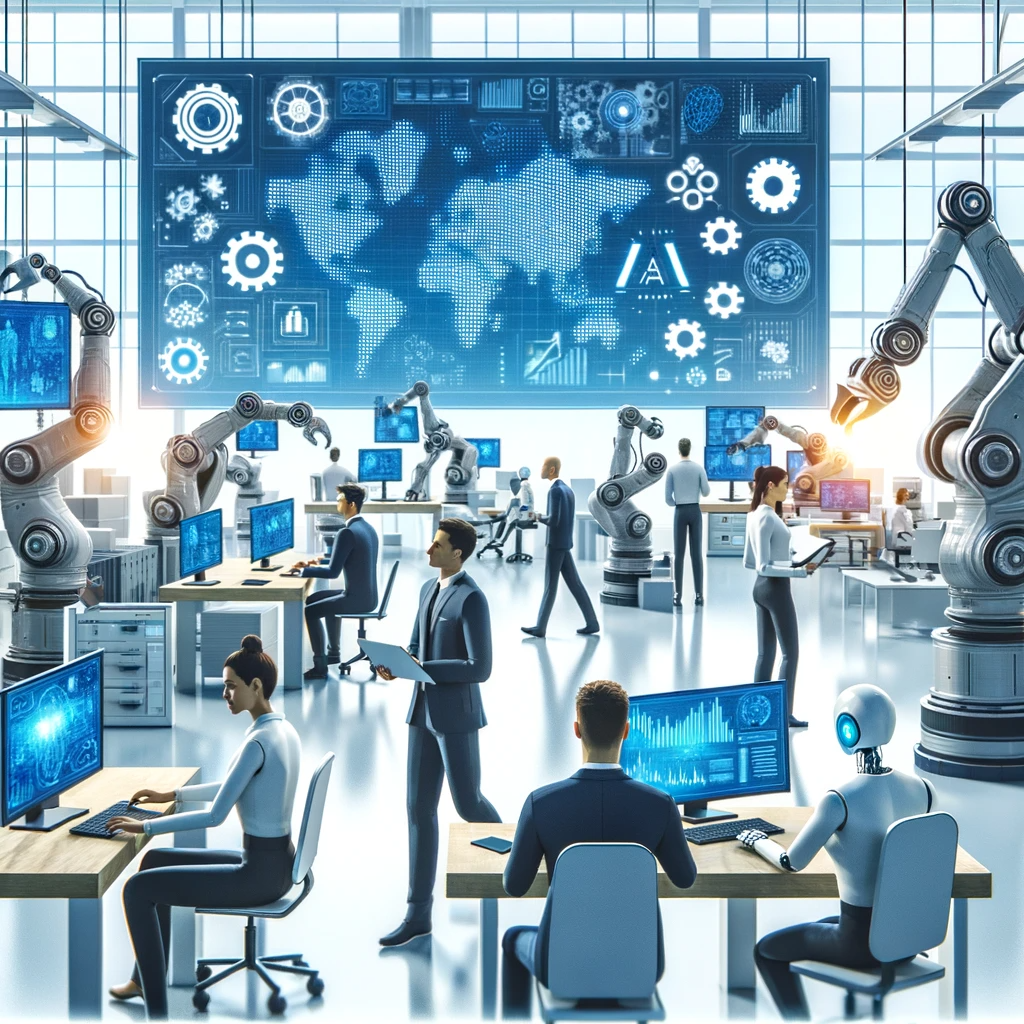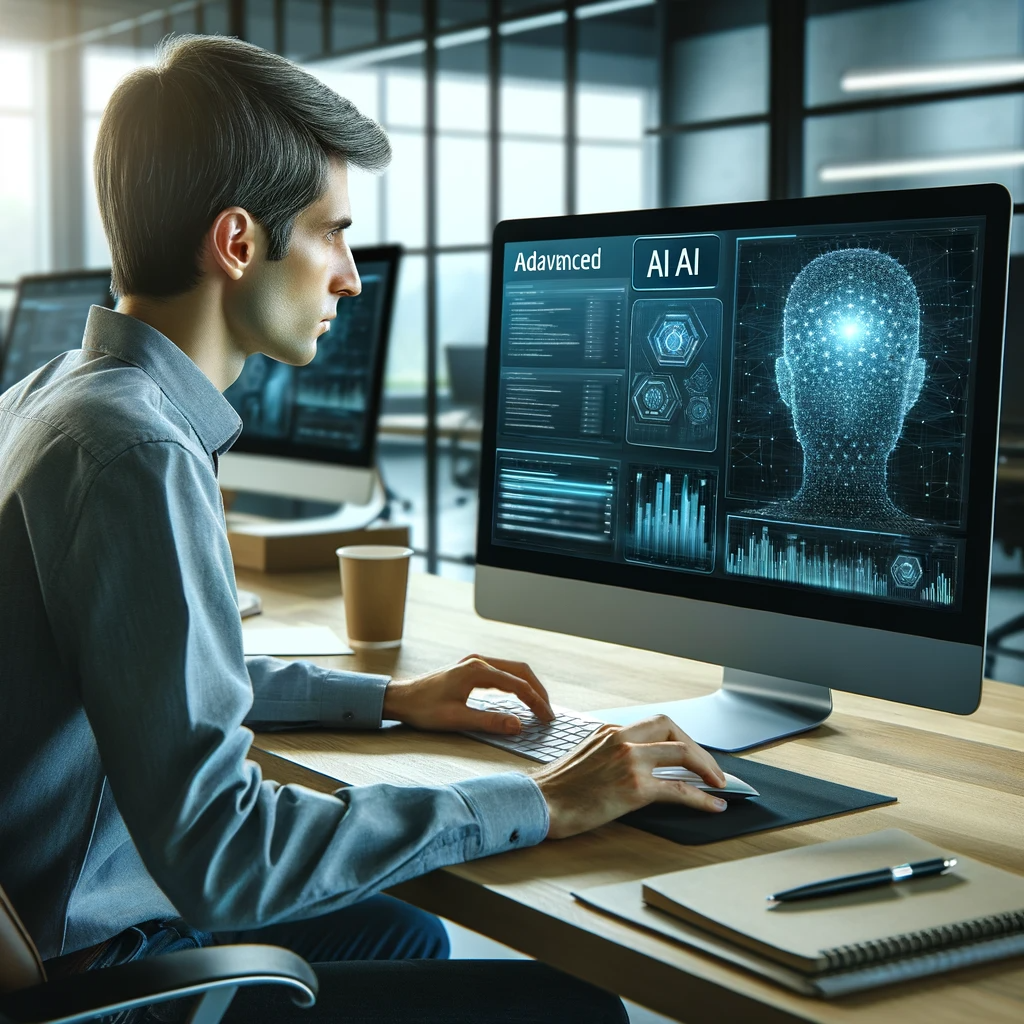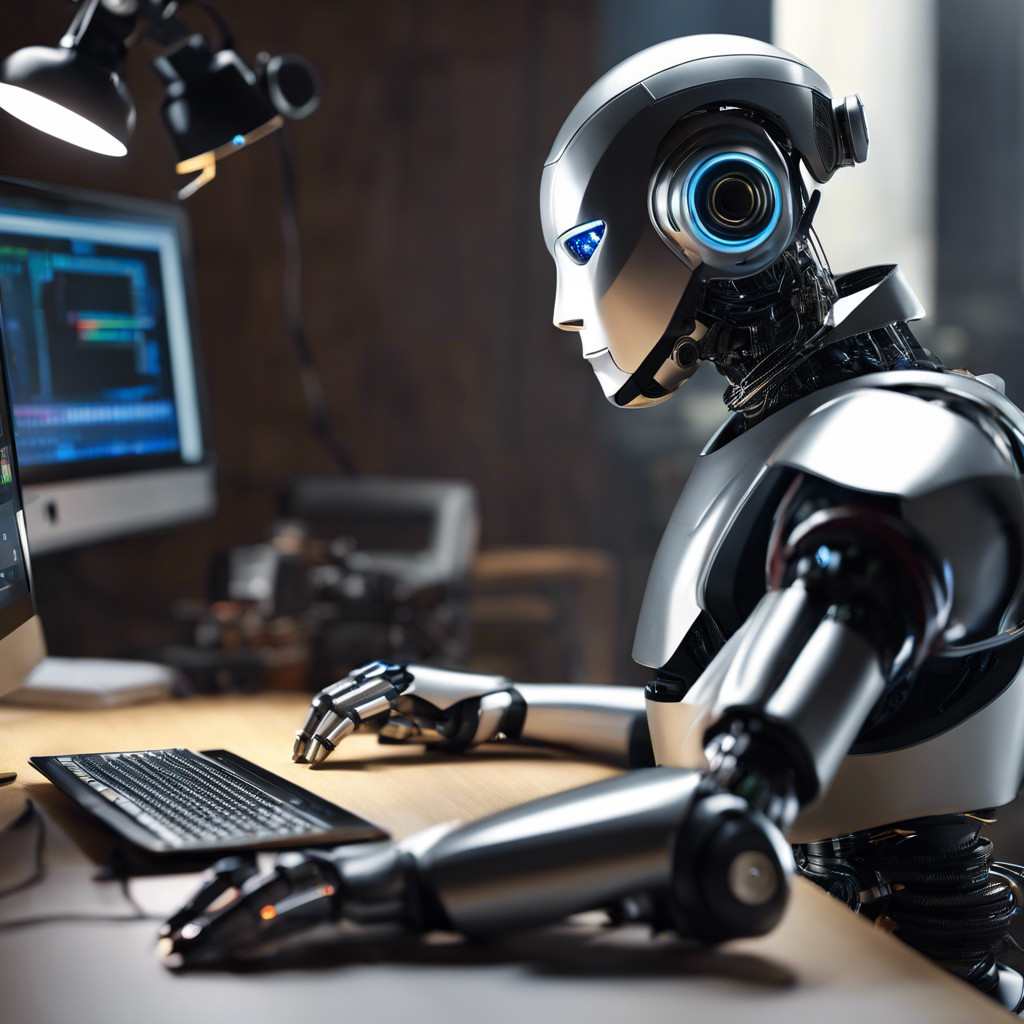Artificial Intelligence (AI) and Automation are like the new electricity in our modern world. They’re everywhere, silently powering changes in how we work, live, and interact. Think of self-checkout kiosks at stores, chatbots on websites, and even smart algorithms suggesting what we should watch next on TV. These are all small glimpses of AI and Automation at work.
But, let’s talk about something that really hits home for many of us – how these technologies are affecting jobs and the workforce. It’s a hot topic, stirring debates in coffee shops and boardrooms alike. Some say AI and Automation are great news, making things faster and more efficient. Others worry that robots might take over our jobs, leaving many of us wondering what the future holds.
That brings us to a big question: Are AI and Automation good or bad news for the workforce? It’s not just a simple yes or no answer. This blog post is going to take you through the different sides of this story. We’ll look at how these technologies are boosting productivity and creating new job opportunities. We’ll also dive into the concerns about job losses and the ethical issues that come along. Plus, I’ll share some insights on how we can all adapt to this changing landscape.
So, let’s get into it and explore this world of AI and Automation together.
The Rise of AI and Automation
AI and automation have had quite the journey, and it’s one that’s pretty amazing when you think about it. Remember when the idea of robots and smart computers was something you’d only see in a movie? Well, that’s sort of where it all began. Back in the day, these ideas were just dreams in the minds of some really creative folks.
But then, things started to change. We first saw machines doing simple jobs in factories, stuff that was repetitive and didn’t need much thinking. It was all about making work faster and not getting people tired. Next up, computers came into the picture. They were pretty basic at first, but over time, they got smarter. Fast forward to now, and it’s like we’re living in the future.
These days, AI and automation are everywhere. They’re not just about doing things quicker; they’re about doing them in smarter ways. Like in hospitals, where AI helps doctors figure out what’s wrong with us quicker. Or in stores, predicting what we’re going to buy next. And when you’re online, and a chat window pops up offering help? That’s AI too, working any time you need it.
Right now, AI and automation are kind of like new team members in the workplace. They’re here, they’re helping out, and they’re changing how we do our jobs. It’s a new world of work, where our digital buddies are making things interesting, and we’re all learning to work together in different ways.
AI and Automation as a Boon
Alright, let’s chat about the brighter side of AI and automation. Some folks might worry about robots taking over, but there’s a whole lot of good stuff happening too. It’s like finding a hidden treasure in a place you never thought to look.
Increased Efficiency and Productivity
Picture this: you’ve got a bunch of routine tasks at work that take up heaps of your time. Now, enter AI and automation, like helpful sidekicks, taking over these tasks. This frees you up to focus on the more important stuff. I’ve seen factories where machines handle repetitive work, and the people are free to do more complex tasks. It makes everything run like a well-oiled machine. Companies are seeing big productivity gains with AI – real numbers showing real improvement.
Job Creation in New Sectors
Here’s an exciting part – AI and automation aren’t just about doing old jobs faster; they’re creating brand-new ones. Ever heard of a drone operator or an AI ethics officer a few years back? These are new roles, and there are more on the horizon. It’s a chance for folks to learn new skills and dive into these emerging fields. The job landscape is evolving, and it’s pretty thrilling to see where it’s headed.
Enhanced Accuracy and Reduction of Human Error
We’re only human, and mistakes happen. But AI and automation? They’re like that super meticulous friend who never misses a detail. In areas where even a small mistake can mean big trouble, like in healthcare or engineering, AI can be a real lifesaver. It means less room for error, higher safety standards, and a lot of peace of mind.
When you look at it this way, AI and automation aren’t just about cold, hard technology. They’re about opening doors to a future where work is smarter, safer, and full of new possibilities. And that’s a future worth getting excited about, don’t you think?
AI and Automation as a Bane
Let’s shift gears and explore a different side of the AI and automation story. It’s not all sunshine and rainbows; there are some real concerns that we need to talk about. These technologies are incredibly powerful, but with great power comes great responsibility, and there are a few areas where we’re still figuring things out. Let’s dive into some of the challenges and concerns that come with AI and automation:
Job Displacement and Unemployment Fears
One of the biggest worries on many people’s minds is job loss. Yes, automation is great for efficiency, but what happens to the jobs that machines now do? Certain sectors are feeling this more than others. For instance, in manufacturing and some parts of retail and customer service, jobs that involve repetitive tasks are at high risk. The statistics and forecasts can be a bit alarming, showing a potential decrease in certain types of jobs as automation becomes more prevalent.
Widening Skills Gap
Another issue is the skills gap. As technology advances, the need for new skills becomes evident. This is a big challenge, especially for those who’ve been in the workforce for a long time and are suddenly finding their skills outdated. It’s not just about learning how to use new tools; it’s about understanding them, being able to think critically about them, and adapting creatively. This gap can be more pronounced in certain demographics, leading to increased inequality in the workplace.
Ethical and Privacy Concerns
Lastly, we can’t ignore the ethical and privacy aspects of AI and automation. These technologies are powerful, but they’re also dependent on the data they’re fed and the parameters they’re given. This raises questions about decision-making processes, biases in AI, and the handling of personal data. Protecting privacy and ensuring ethical use of AI are critical issues that need attention and careful handling.
While AI and automation bring exciting possibilities, they also bring these challenges to the forefront. It’s crucial to address these concerns thoughtfully, ensuring that the benefits of these technologies are balanced with the wellbeing and rights of individuals.
Balancing the Impact: Adaptation Strategies
The AI and automation landscape is a bit like sailing in uncharted waters. It’s exciting, sure, but it also means we need to be smart about how we handle the challenges. The key? Adaptation. We’ve got to be ready to learn, adjust, and sometimes, even change course. Let’s talk about some strategies that can help us balance the scales.
Role of Education and Continuous Learning
Education is our first port of call. Our schools and colleges need to catch up with the times. We’re not just talking about learning to code (though that’s great too), but about understanding how technology works and fits into the bigger picture. It’s also about nurturing problem-solving, critical thinking, and creativity. And it doesn’t stop when you leave school. The world’s changing fast, and to keep up, we need to embrace lifelong learning. This means retraining programs, online courses, and workshops to help people stay in tune with the latest in tech.
Government Policies and Regulations
Then there’s the role of governments. They’re like the navigators, helping steer the ship in the right direction. We need policies and laws that support both innovation and the workforce. This could mean regulations that encourage ethical AI use or financial support for people who need to retrain or upskill. Around the world, governments are rolling out initiatives, from tax incentives for companies investing in AI to funding educational programs in tech. It’s about finding a balance where technology grows, but not at the expense of the workforce.
Corporate Responsibility and Ethical AI
Finally, let’s chat about businesses and their part in all this. Companies that use AI and automation have a big responsibility. It’s not just about using these technologies to make a profit. It’s about using them responsibly. This means thinking about the impact on employees, customers, and society as a whole. Companies are now creating ethical guidelines for AI use and thinking about how to deploy these technologies in ways that benefit everyone. It’s about being a good corporate citizen in a world where technology is more powerful than ever.
By focusing on education, supportive policies, and responsible corporate practices, we can make AI and automation work for us, not against us. It’s about steering this ship together, making sure we’re all ready for the exciting journey ahead.
Summing Up
So, we’ve journeyed through the world of AI and automation, exploring the highs and the lows. We’ve seen how these technologies are revving up efficiency and creating new jobs, but also how they can lead to job losses and ethical dilemmas. It’s a mixed bag, really.
From my corner, I see AI and automation as tools – like a hammer or a paintbrush. They can build or paint beautiful things, but a lot depends on how we use them. It’s not just black and white. These technologies can be a boon if we harness them wisely, but they can be a bane if we’re not careful about their impact.
Here’s a shout-out to everyone involved: the workers, the bosses, and the folks making the rules. To the workers: stay curious and keep learning. The world’s changing, and staying adaptable is your superpower. To the employers: remember that with great power comes great responsibility. Use these technologies to empower your teams, not replace them. And to the policymakers: help bridge the gap. Create policies that protect workers while encouraging innovation.
As we look ahead, I’m optimistic. AI and automation are like new members of our workforce family. They’re here to stay, and I believe we can all work together to create a future where technology uplifts everyone. It’s about collaboration, adaptation, and finding that sweet spot where humans and machines complement each other. Here’s to a future where we work hand in hand with technology to make our world a better place!



